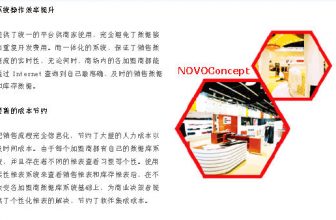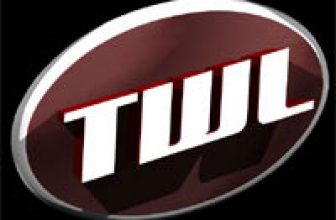
River Island deploys RFID technology in all 280 stores
[ad_1]
Fashion retailer River Island is deploying RFID solutions in all 280 stores. The retailer will use RFID tags to track all clothing in 280 stores.
Jon Wright, Global Head of Loss Prevention and Security at River Island, said the company currently plans to use the RFID system in the tracking of items. This deployment uses the !D Cloud EPC UHF RFID solution provided by Nedap to track inventory levels in stores and achieve more accurate automatic replenishment, thereby increasing sales.
Prior to this deployment, the company has conducted a multi-stage pilot in seven stores. The results of the pilot show that RFID technology has increased the inventory accuracy of River Island to 97%, while also greatly increasing sales.

(River Island employees use Nedap! D Hand 2 card readers to check inventory in stores)
Wright explained that River Island uses a systematic RFID deployment method, first identifying the best use cases and testing in several stores, then evaluating the test results and making a phased deployment plan.
Wright joined the company three years ago and is responsible for the company’s global loss prevention work. The company considered multiple RFID suppliers before choosing Nedap, and finally found that the solutions they provided were too strict for River Island. Although most retailers try to use the system for multiple purposes, River Island wants to start with a simpler method.
Wright said: “We decided to start with the feature that has the greatest impact, that is, the level of inventory accuracy. River Island hopes to reduce the risk of loss of sales through automatic replenishment.”
In terms of SKU marking pilot selection, River Island’s RFID pilot deployment is quite different from most retailers. Although some RFID technology vendors recommend starting deployment on fast-moving goods, River Island does not do so. Wright explained that this is because fast-moving items like denim jeans are usually more in stock and rarely out of stock.
On the contrary, in the three-month pilot deployment in three stores, River Island attached RFID tags to all clothing items. River Island has attached a barcode label with Alien Higgs 4 RFID chip inside the distribution center. River Island uses Nedap’s !D cloud software to collect inventory data in retailer management software. Store employees also use Nedap! D Hand 2 readers to conduct inventory counts on a regular basis.
After the weekly inventory count, !D Cloud software will display the number of item tags read for each SKU, and compare it with the number of items stored in the retail store software to confirm whether there is any loss. !D Hand 2 reader will transfer the data to the Android device via Bluetooth connection after reading the tag ID. After updating the inventory information, the application on the device will transmit the data to the server. Then, the !D cloud software will share the inventory count data into the Island inventory management software to realize automatic replenishment.

(During the inventory counting process, the !D cloud program will display the quantity of each SKU item)
River Island developed 3 KPIs for this pilot deployment: to achieve a 95% inventory accuracy level, increase sales, and get positive feedback from employees. Three months later, River Island achieved these three goals. Then, the company removed the technology, and the KPI indicators quickly dropped to the previous level. After that, the company began a three-month trial in three different stores, and delegated the use of the system and data management tasks to store employees. In the third stage, the company began to test the system in a flagship store, and evaluated the effectiveness of the system by tracking indicators such as the sales rate of each SKU.
At present, the project has entered the fourth phase and is deployed in all 280 stores. The company plans to complete the deployment by the end of 2017, using RFID tags with built-in Impinj Monza R6-P RFID chips. Suppliers of River Island will also begin to attach RFID tags, and these products are expected to enter the supply chain in May next year.
! D Cloud product manager Danny Haak said that once the project is proven effective by retailers such as River Island, this kind of large-scale promotion will become more common. He said: “It is one thing to develop a solution to take inventory of goods, but it is another thing to ensure that the solution can be used in hundreds of stores without disrupting in-store processes and existing IT infrastructure.”
!D cloud system not only allows store employees to view inventory data on handheld readers, but also view this information at a centralized location.
The application allows multiple employees to perform inventory counting at the same time. Haak said: “This is particularly useful for large stores. When several employees of the store are performing inventory counts at the same time, the app will update the personnel inventory records in real time.”
Wright said that after River Island first began experimenting with the technology, the system has proven to be beneficial to retailers. He said: “Although the technology and loss prevention are not very relevant, the team is still very satisfied with the effect of the system implementation.”
[ad_2]






